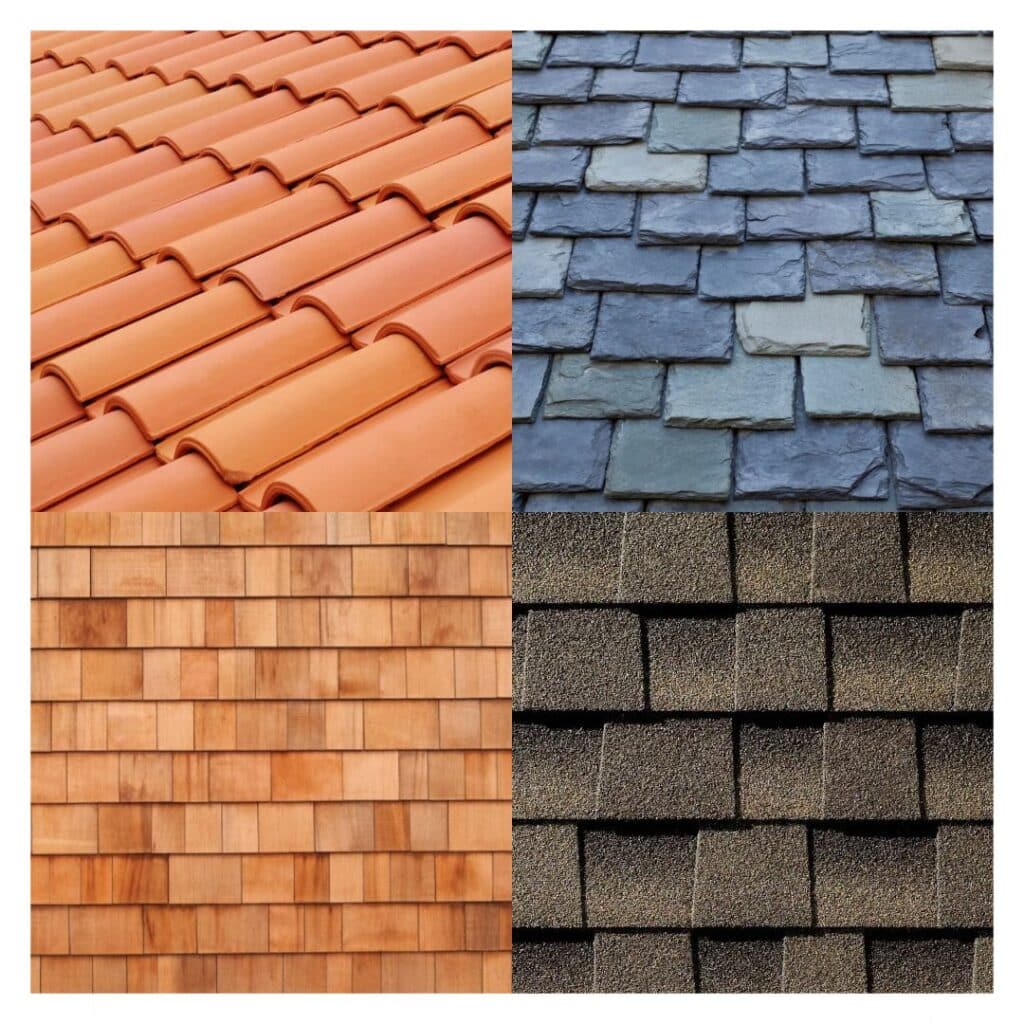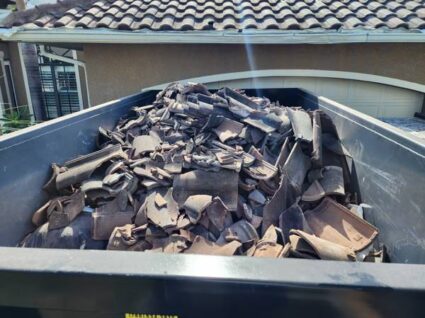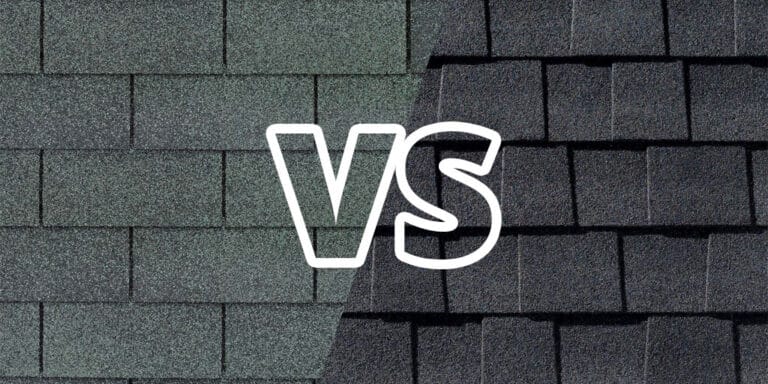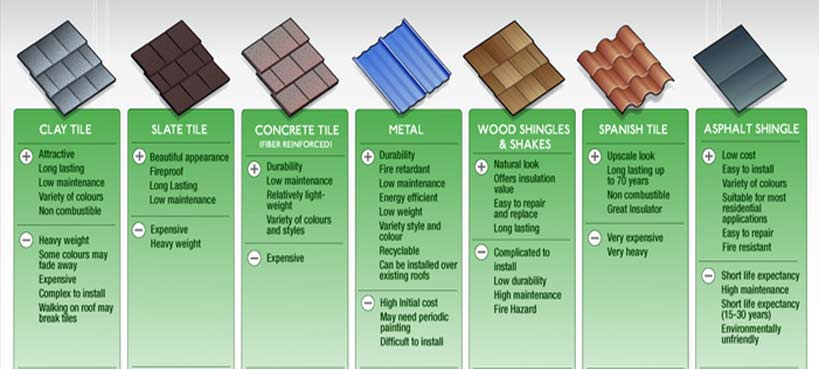Roofing Dumpster Rentals
Stay On Course with a Reliable Partner: Our Nationwide Inventory Ensures Efficient Shingle Disposal Wherever You Are. Count on Us!
Call for immediate delivery!

How Does a Roofing Dumpster Rental Work

If you're looking to dispose of old roofing shingles, you've found the perfect resource.
Our comprehensive guide on roofing shingles disposal simplifies the process, allowing you to effectively handle your roof debris and select the correct dumpster size for your project.
Whether you're a DIY enthusiast or a professional contractor engaged in a roofing project, we're dedicated to eliminating the uncertainty associated with renting a roll-off dumpster for shingle roof removals and replacements.
Where to Start?
When beginning any roofing project, it's crucial to take several factors into account. Here are the key considerations:
- Choice of Shingle: Decide between 3-Tab and Architectural Shingles.
- Roof Size: Assess the dimensions of the roof to determine material requirements.
- Shingle Layers: Consider the number of layers of shingles present.
- Additional Materials: Account for items like felt, lumber, nails, etc., which require disposal.
*Additionally, be mindful of legal weight restrictions for hauling, as these may vary by location. Discuss this matter with your representative before delivery to ensure compliance.
3 Tab vs. Architectural Shingles
How Many Dumpsters Will You Need?
Asphalt shingles carry considerable weight, typically ranging from 45 to 60 pounds per bundle. Roofing shingles are measured in "roof squares," indicating the quantity required to cover 100 square feet of the roof. For example, a 2,000-square-foot roof is often referred to as a "20 square."
Replacing one square of the roof typically requires around three bundles of shingles. This means that an average roof square holds approximately 150 pounds of shingles.
Due to the substantial weight of asphalt roof shingles, proper disposal is crucial. Residential trash services often cannot accommodate the volume of discarded shingles, and most refuse haulers are reluctant to accept large quantities of asphalt shingles.
When arranging for a dumpster, it's essential to consider the weight of asphalt shingles. Many municipalities, counties, and states have regulations governing the allowable weight for transportation on streets and highways. Additionally, landfills impose restrictions on the weight of deposited loads.
While selecting a large dumpster might seem convenient for containing all shingle waste, it's vital to avoid exceeding weight limits to comply with regulations.
Be sure to check out our handy Weight Calculator
Weight Comparison: Common Roofing Materials
| Roofing Type | Weight per square (100 sq ft) |
| Copper | 100-125 lbs |
| Asphalt shingles | 275-475 lbs |
| Concrete tile | 400-700 lbs |
| Asphalt shingles | 275-425 lbs |
| Clay tile | 1100-2000 lbs |
| Wood shakes | 450-600 lbs |
Dumpster Sizes Average Weight Limits
| Dumpster Size | Average Weight Limit |
| 10 Yard | 4,000-6000 lbs |
| 20 Yard | 5,000-7,000 lbs |
| 30 Yard | 7,000-10,000 |
| 40 Yard | 12,000-16,000 lbs |
Why Rent From Bargain Dumpster?

Great Low Prices
We offer transparent pricing with no hidden fees or surcharges to all our customers, large or small.

Friendly, Knowledgeable Staff
We have years of experience working with homeowners and contractors nationwide to ensure a smooth hassle-free project.

Advance Bookings
Is your project several months away? Don't worry we would be happy to pre-schedule your delivery so your job starts on time.
Asphalt Shingles Adhesives For most roofing projects, a 10 or 20-yard dumpster is sufficient. A 10-yard dumpster can typically hold debris from smaller roofs or partial roof replacements, while a 20-yard dumpster is suitable for larger roofs or full replacements. In many areas, you may need a permit to place a dumpster on the street or public right-of-way. However, if you’re placing the dumpster on your property, a permit may not be required. It’s advisable to check with your local municipality or the dumpster rental company for specific permit requirements in your area. It’s generally recommended to keep roofing materials separate from other types of debris to facilitate recycling and proper disposal. Mixing materials may also affect the weight limits or incur additional fees.
Slate Tiles
Terracotta Tiles
Concrete Tiles
Felt Paper
Wood Shingles
Lumber
Underlayment
Roofing Gravel
Flashing and Trim
Nails
Tar and Polyurethane foam – In most areas be sure to confirm with your account manager
Paints and Lacquers
Hazardous Materials
Contaminated Soils and Absorbents
Asbestos
Have any additional Questions?
Call us today and we would be happy to walk you through the rental process.


